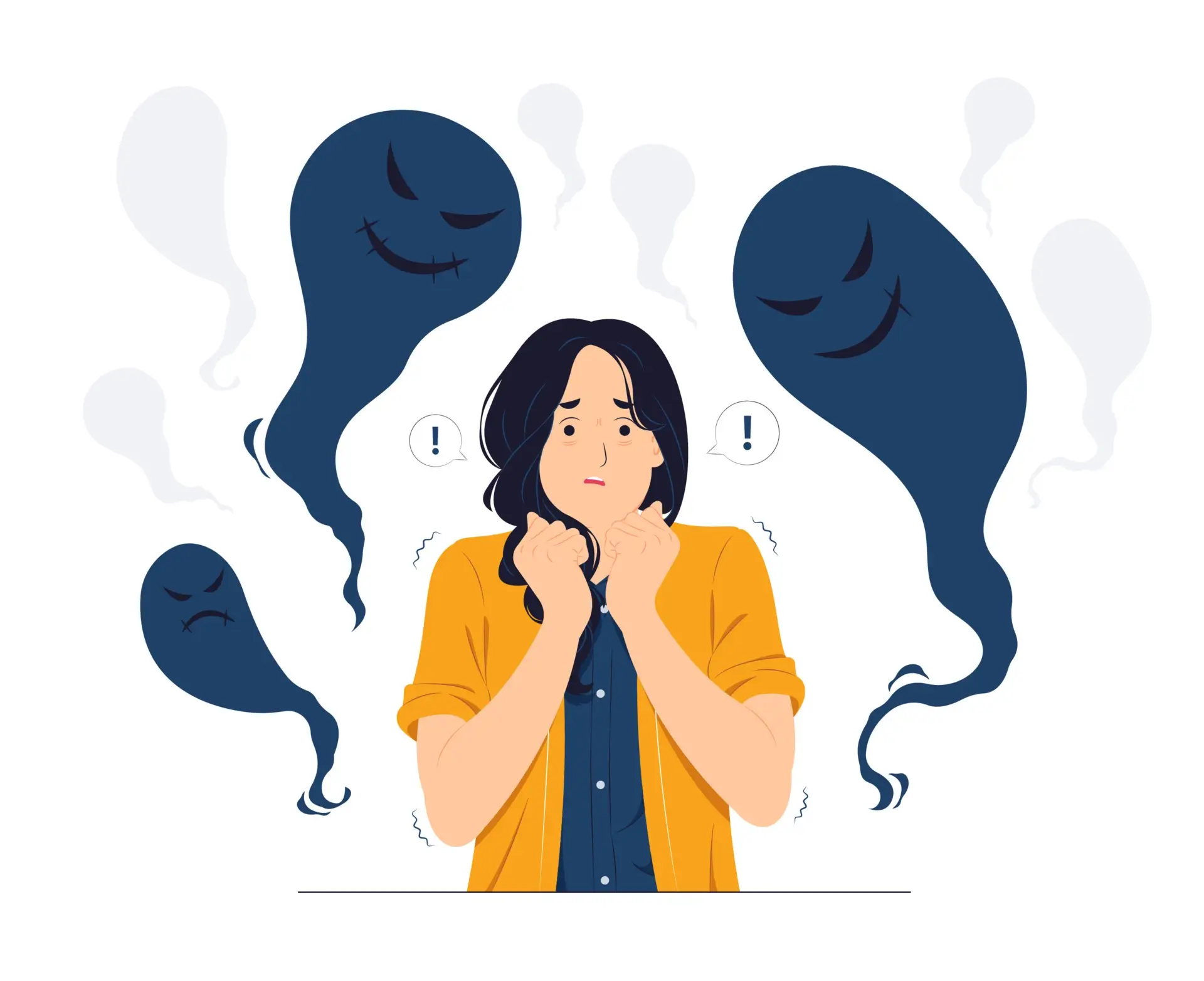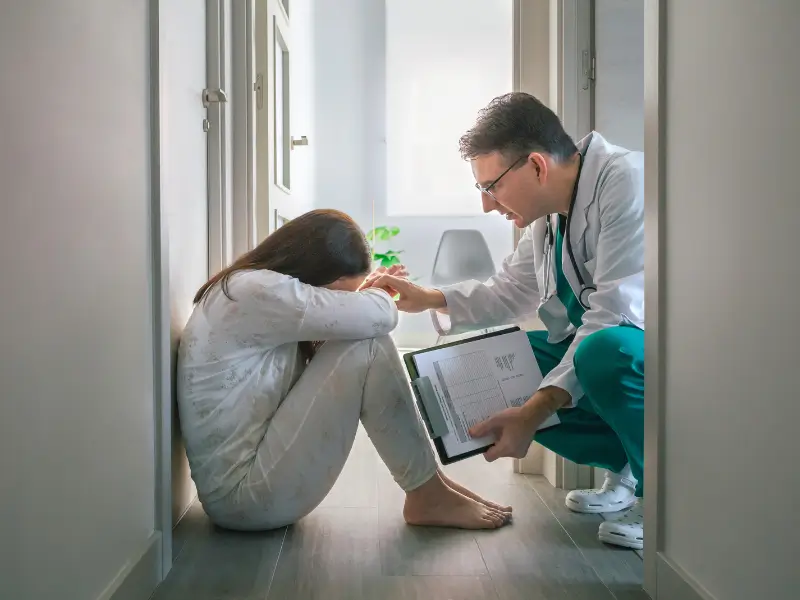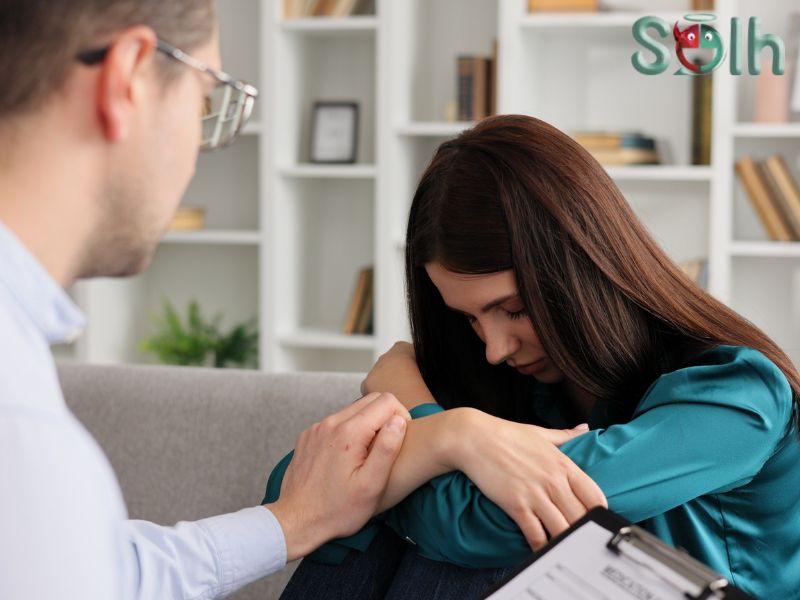Phobias are more than just a dislike of something. They're intense and irrational fears that can significantly disrupt daily life. This blog dives into the world of phobia disorders, exploring the signs, triggers, and effective treatments available.
Difference Between Fear and Phobia
We all experience fear. It's a natural defense mechanism that keeps us safe from danger. But sometimes, fear can escalate into a phobia disorder. Here's the key difference: fear is a proportionate response to a threat, while a phobia is an exaggerated reaction to a situation or object that poses little or no actual danger.
Symptoms of Phobia Disorders
Phobias manifest in various ways, but some common symptoms include:
- Intense anxiety and panic attacks: When encountering the phobic stimulus, individuals might experience overwhelming anxiety, rapid heartbeat, sweating, shortness of breath, and even feelings of detachment from reality.
- Urge to escape: The overwhelming fear often triggers a strong desire to flee the situation or avoid anything associated with the phobia.
- Physical symptoms: Alongside emotional distress, phobias can manifest physically with nausea, dizziness, trembling, or chest tightness.
Causes of Phobia Disorders
The exact causes of phobia disorders remain under investigation, but a combination of factors is likely at play:
- Negative experiences: Experiencing a traumatic event related to the phobic object or situation can trigger a phobia. For instance, witnessing a car accident might lead to a phobia of driving.
- Genetics: Studies suggest a genetic predisposition might make some individuals more susceptible to developing phobias.
- Brain chemistry: Imbalances in brain chemicals, particularly those involved in fear processing, could contribute to phobias.
- Learned behaviors: Observing phobic reactions in others, particularly during childhood, can influence the development of similar phobias.
Finding Relief from Phobia Disorders
The good news is that phobia disorders are highly treatable. Here are some effective approaches:
- Exposure therapy: This therapy gradually exposes individuals to the phobic object or situation in a safe and controlled environment. By facing their fears in a safe setting, individuals can learn to manage their anxiety and reduce their phobic response.

- Cognitive-behavioral therapy (CBT): CBT helps individuals identify and challenge negative thought patterns associated with the phobia, fostering coping mechanisms. By reframing their thoughts about the phobic stimulus, individuals can develop a more realistic perspective and manage their anxiety more effectively.
- Medication: In some cases, anti-anxiety medications can be helpful in managing phobic symptoms, particularly during exposure therapy. Medication can provide temporary relief from anxiety, allowing individuals to participate more fully in therapy sessions.
Phobias and Fear disorders are not a sign of weakness. With the right treatment approach, you can overcome your phobias and live a fulfilling life. If you suspect you or someone you know has a phobia disorder, don't hesitate to seek professional help. A therapist can diagnose the specific phobia and develop a personalized treatment plan to manage your symptoms and empower you to live a life free from fear.
At Solh, we deeply value mental health and understand the pivotal role of compassion in overall well-being. That's why we've carefully assembled a suite of empowering Self-help tools and Community Support tailored to nurture your mental health. Our curated offerings encompass a diverse array of resources, from journaling, and support groups to Solh Buddy, allowing you to share your experiences, seek support, offer guidance, and connect with others - anonymously or as yourselves. Take control of your path toward enhanced mental well-being by exploring and utilizing our comprehensive resources at Solh!



